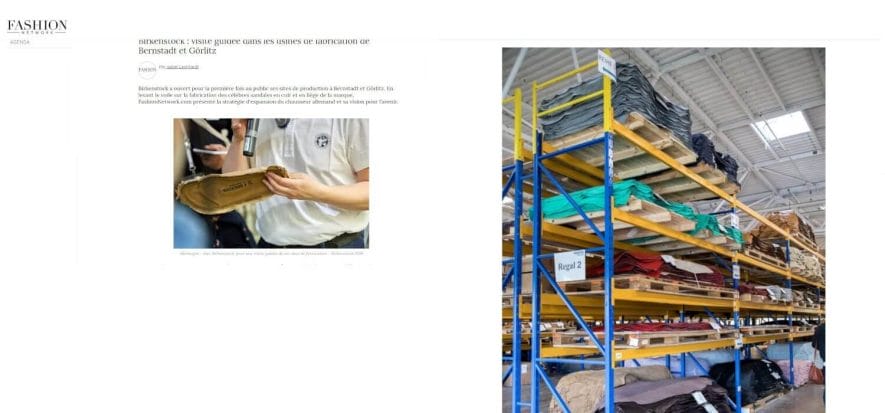For the very first time, Birkenstock let visitors get in and see two, out of five, of their manufacturing plants. Over the last five years, the German company, which currently hires 4,253 employees, that is 25% of Germany’s whole footwear industry, enjoyed a considerable boost: in fact, their business increased by around 20% on average. Since 2014, their overall turnover went up by 150%: they now aim at one billion euros in terms of revenues. Oliver Reichert, Birkenstock chief executive officer, expects the company to produce 27 million pairs of shoes by the end of 2019 financial year (from September 2018 to September 2019). Ten years ago, production would reach 5 million pairs of shoes a year. Every year, they process 485,000 bovine hides. A group of journalists, led by Jochen Gutzy, Birkenstock communication manager, visited two manufacturing sites. Isabel Leonhardt, from Fashion Network, gave a detailed report over the factory based in Bernstadt, which has been actively running since 1991: 600 people currently work there, 450 of whom are employed in the production department, where they make 40,000 pairs of liners and 90,000 pairs of uppers a day. When it comes to some specific tasks, workers mark and cut leather manually, not by machine whatsoever. “Despite all new technologies we may take advantage of, we do not want to give up such process because leather is a natural and unique product. Machines are not so sensitive, as human eyes are, while looking at hides and leather features”, pointed out Gutzy during the visiting tour. The brand’s iconic soles are made of three different materials: leather, suede and microfiber. As regards upper shoes, they are made of leather (35%) and synthetic material (65%). The manufacture of Birkenstock popular sandals takes 80 processing stages. As regards soles, which are part of the brand’s image, they make them in Görlitz, a town situated in eastern Germany. The factory, which opened in 2007, currently employs around 1,350 workers, 1,150 of whom are permanently on duty in the production department.
Inside Birkenstock backstage: here leather undergoes special processing










